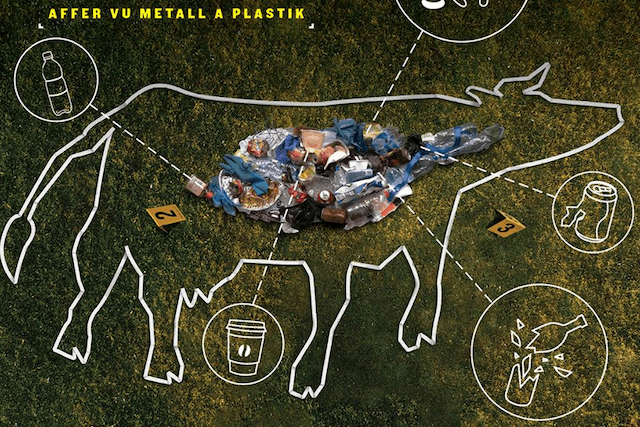Agriculture Romain Schneider (LSAP) and environment minister Carole Dieschbourg (déi Gréng) on Tuesday launched an awareness campaign against littering.
“Whenever waste is thrown into nature, it risks being ingested by animals and especially livestock,” said Schneider. The pandemic has exacerbated the problem, with more people taking country walks as a pastime, leading to more waste dumped in nature.
Animals ingest anything from plastic wrappers and bottle caps to chewing gum, dog faeces, metal parts or shards of glass. This can cause severe suffering and death of the animals but also represents an economic loss for the farmers.
Farmers also have to combat the waste left in their fields when mowing grass for hay or animal feed.
“Throwing cigarette butts, wrappers or chewing gum in nature is no small feat. The impact on the environment is direct and serious,” said Dieschbourg at the campaign launch on 13 April.
A study on littering will be updated between the end of 2021 and mid-2022. The last results of a similar survey in 2015 found that the state pays around €1.2m to clean up littering along country roads and highways.
Some 103kg of waste per kilometre were collected along national roads (up from 89kg in 2008) in addition to 216kg per kilometre along the country’s motorways (down from 309kg). Plastic made up around a third of waste collected overall. Plastic bottles accounted for 15%, compared to 18% for drinks cans.
Littering is fined with €145. The fine is higher at €250 for waste thrown into rivers or waterways.
